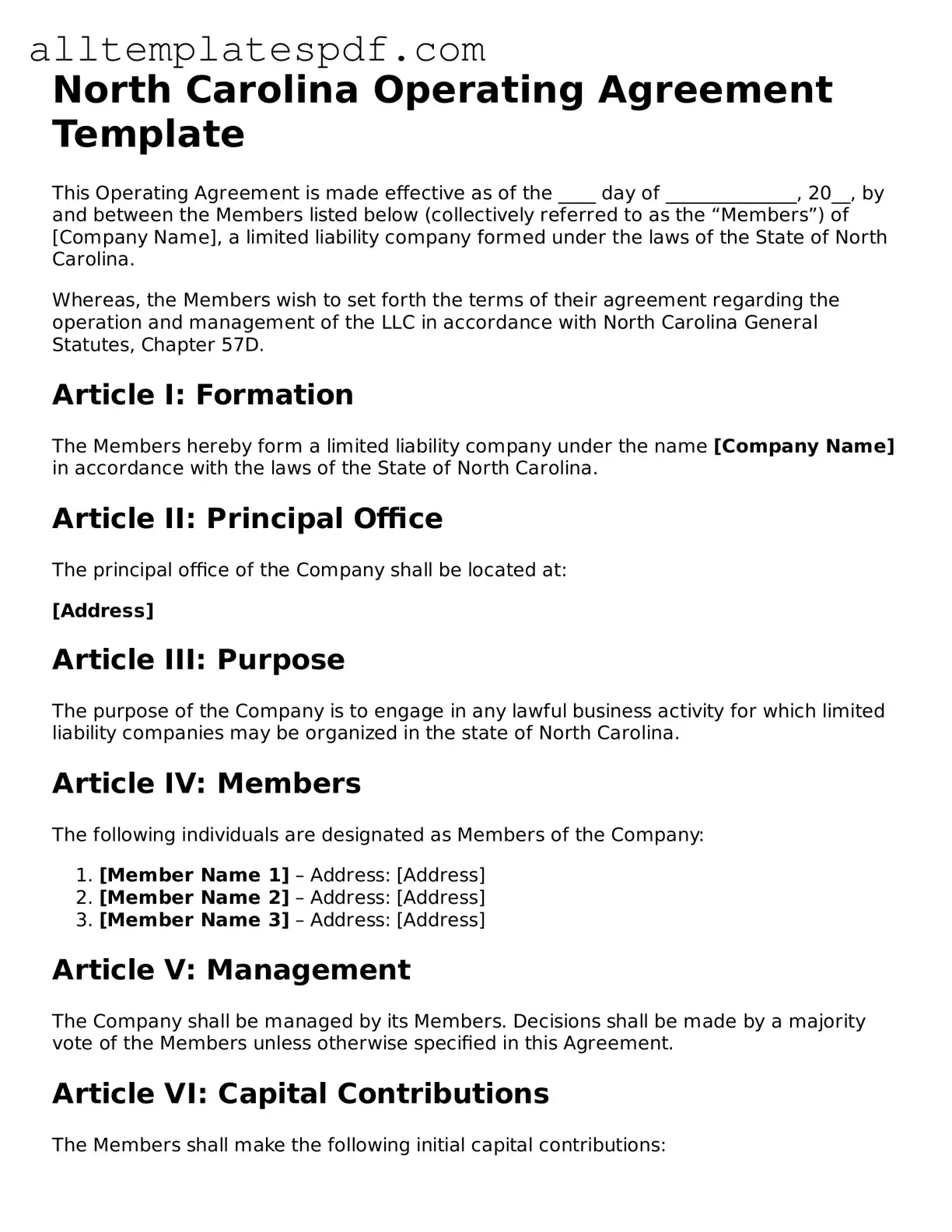Blank Operating Agreement Template for the State of North Carolina
The North Carolina Operating Agreement is a crucial document that outlines the management structure and operating procedures of a limited liability company (LLC) in the state. This agreement serves as a roadmap for how the business will be run, detailing the rights and responsibilities of its members. To ensure your LLC operates smoothly, consider filling out the form by clicking the button below.
Open Editor

Blank Operating Agreement Template for the State of North Carolina
Open Editor
Fast and easy form completion
Complete Operating Agreement digitally — fast and easy.
Open Editor
or
↓ Operating Agreement PDF Form
